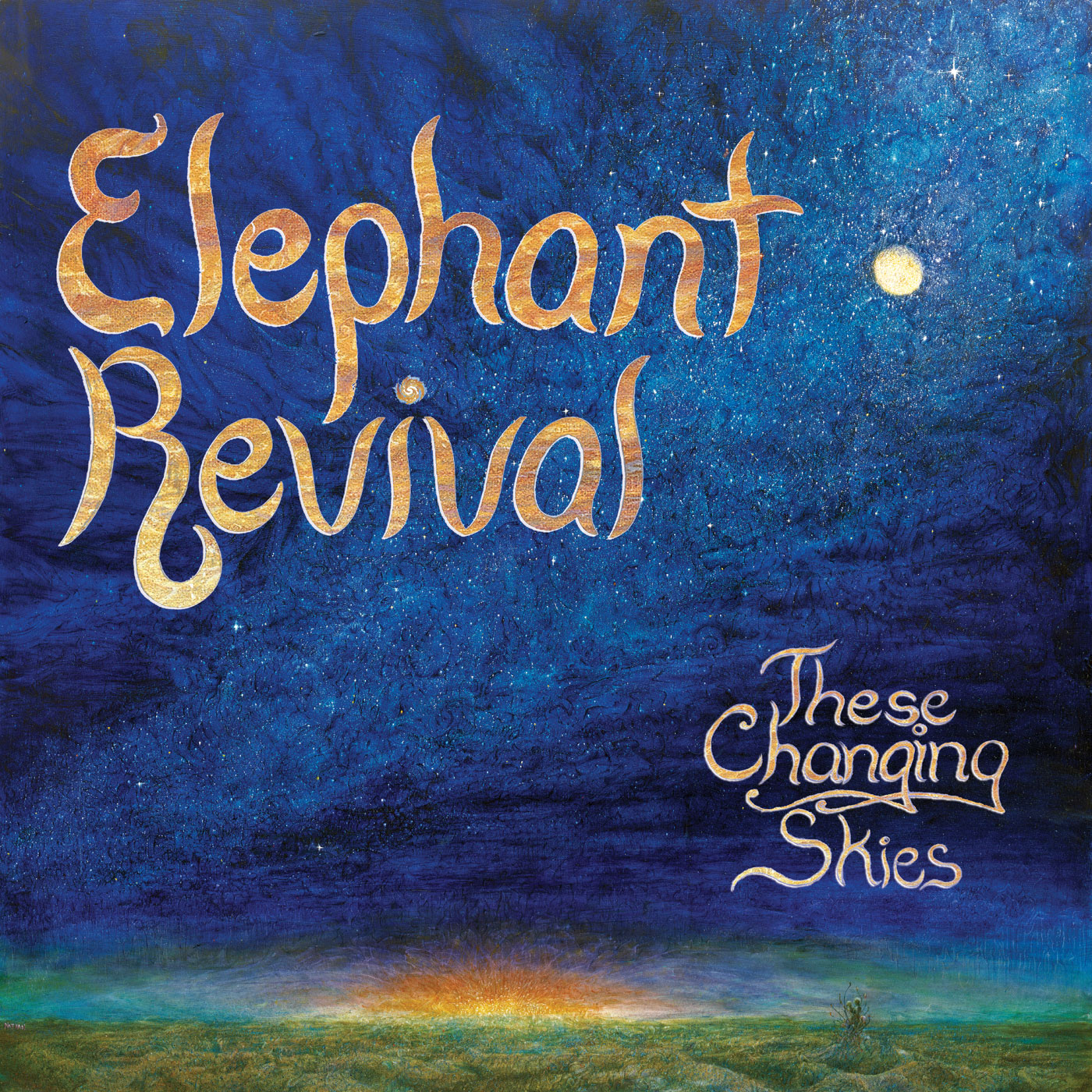If you listen to pop radio today, you might get a rather narrow impression of folk music: banjos, unrequitted love and rousing choruses. In truth, the genre is more expansive, as Elephant Revival will be the first to remind you. Their regular instrumental lineup falls on the traditional side: an acoustic guitar, a banjo, a double bass, a mandolin, a fiddle and a washboard.[1] Within a handful of songs, they’ll also manage to cycle in a few more classics (good ol’ pedal steel guitar and mandolin) as well a few less common instruments (musical saw or djembe, anyone?).
Even more thrilling is the melodic range Elephant Revival draws out of these instruments, nowhere more evident than on their masterwork, These Changing Skies. These Changing Skies jumps from the full-on jig of “The Pasture” to the pensive country of “Satisfied” to the old-timey pop of “Grace of a Woman,”[2] all without ever seeming unfocused or scattered.
What’s more, many of the songs are musical roller coasters in themselves. “Rogue River” is dominated by a bone-rattling djembe part that enters and exits the otherwise a capella arrangement like waves in a tempest. Frontwoman Bonnie Paine’s often gratuitous vibrato serves her well here, as it adds a certain rawness to her tale of an alcoholic single mother.
In “Down to the Sea,” strings swirl around the pulsing percussion like rain wrapping a car that that nonetheless shoots down the highway. The momentum of the rhythm grabs the listener and pulls them along the road with the narrator as he sings of his attempts to repair his relationship with a distant ex-lover. At the end of each verse, the washboard halts and the string slow for the final lines, a reminder of the sobering ending that surely awaits this breathless trip.
Simpler but no less powerful is “Spinning”—a jig about the jubilation of the saints. The band pulls off euphoria quite well with a jaunting arrangement that seems ready to burst with overabundance at each moment.
The saints’ song of joy? “They sing what comes of hearts and tongues”—traits they share with mortal humans. This connection of daily life with the transcendent[3] is just another example of Elephant Revival’s extravagant human melodrama. The unabashed romanticism might be harder to swallow if Elephant Revival didn’t build it upon such an affecting musical tapestry. Richness of experience and the musical eloquence to convey it. Hearts and tongues indeed.
[1] If you are like me three years ago, you may wonder how a washboard can sound any good. Listen to Elephant Revival. You will learn to love the washboard’s rapid-fire beats. Back.
[2] The lyrics are, as you might imagine, somewhat regressive. Back.
[3] A key theme throughout Elephant Revival’s career: see “Raven Song” and “What Is Time” for some stellar examples off of other albums. Back.
